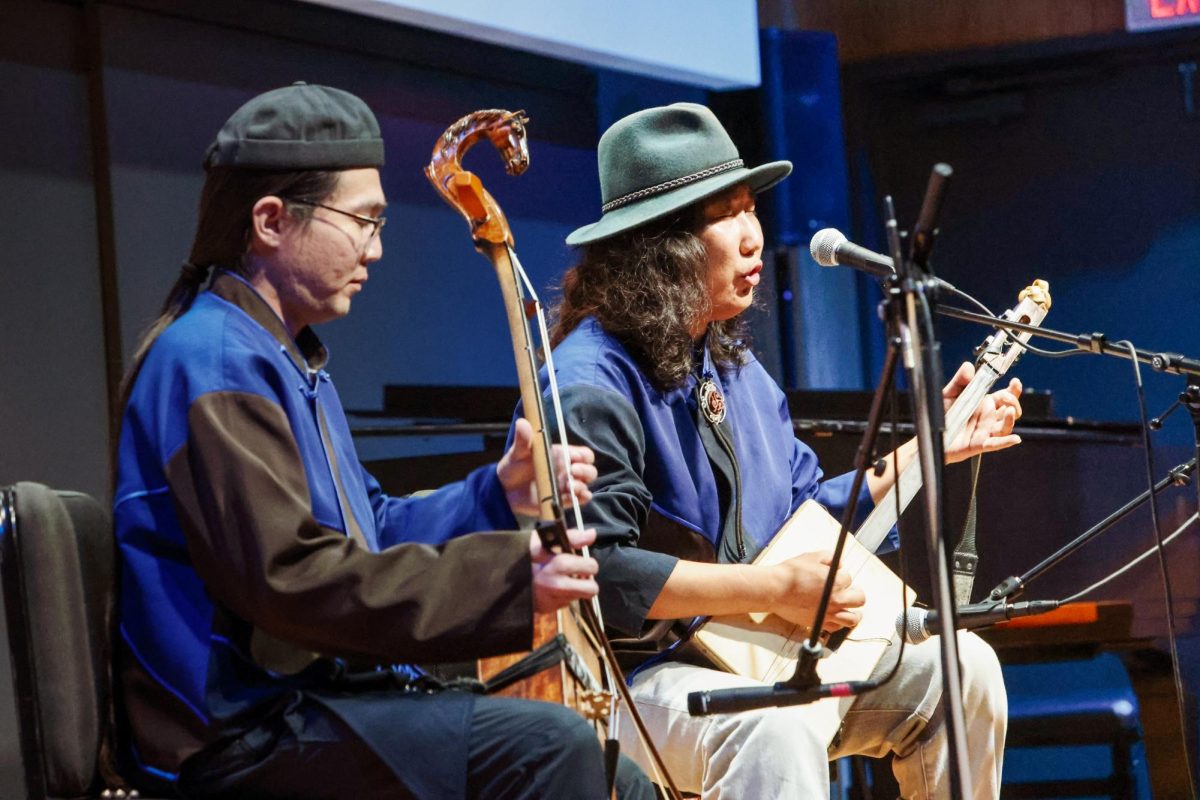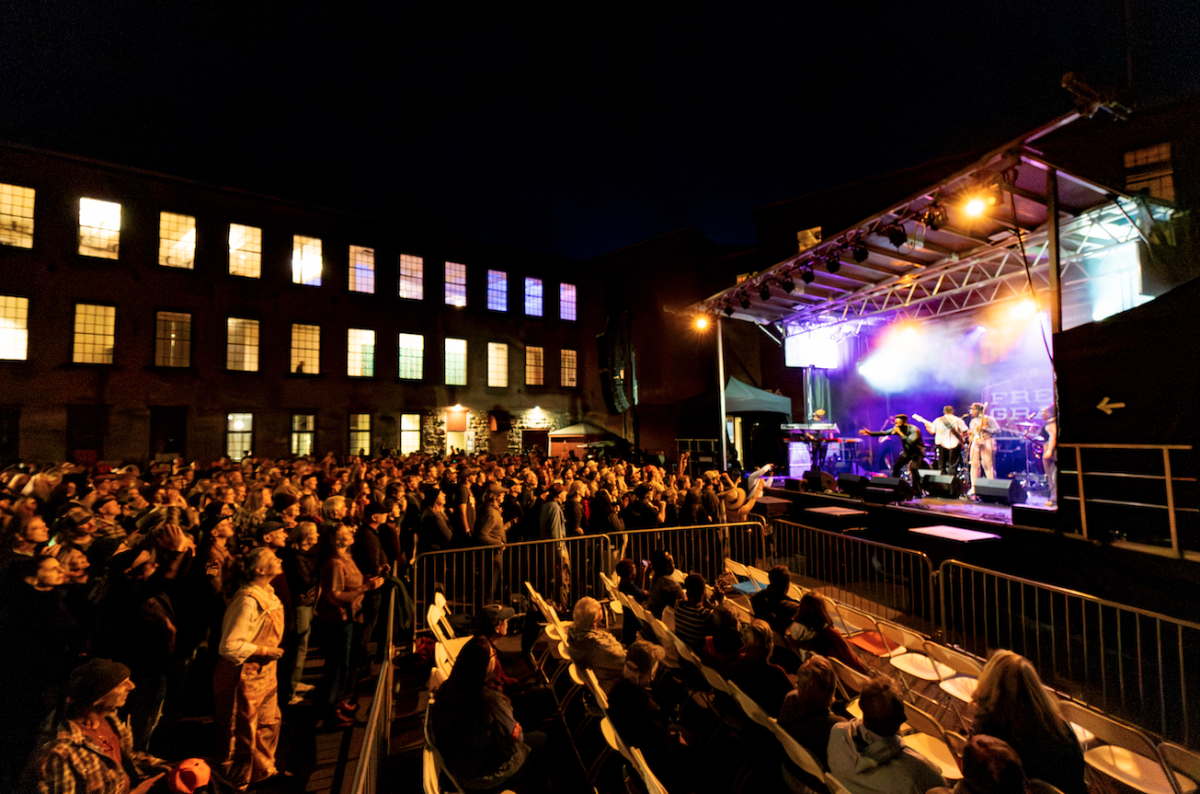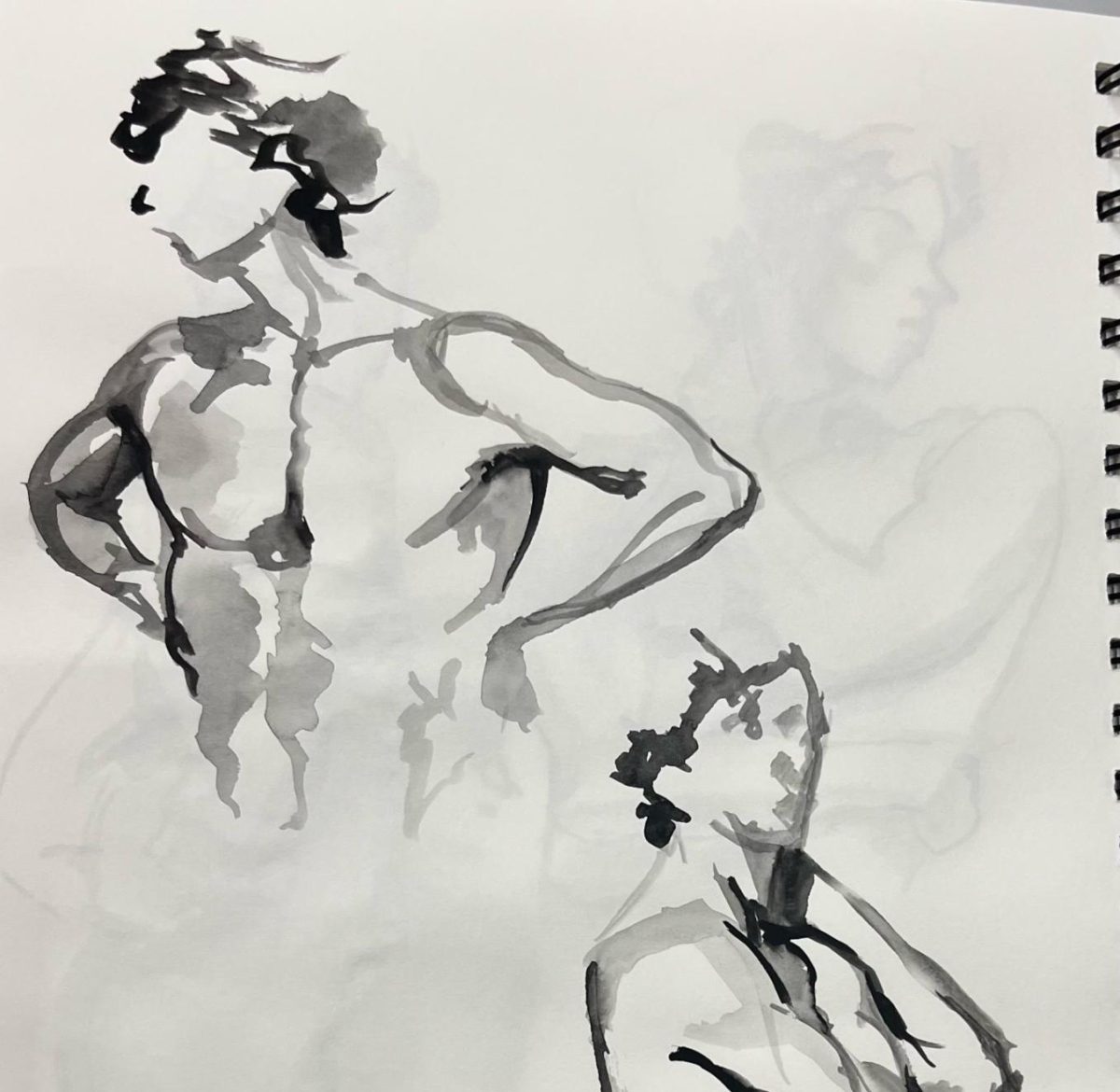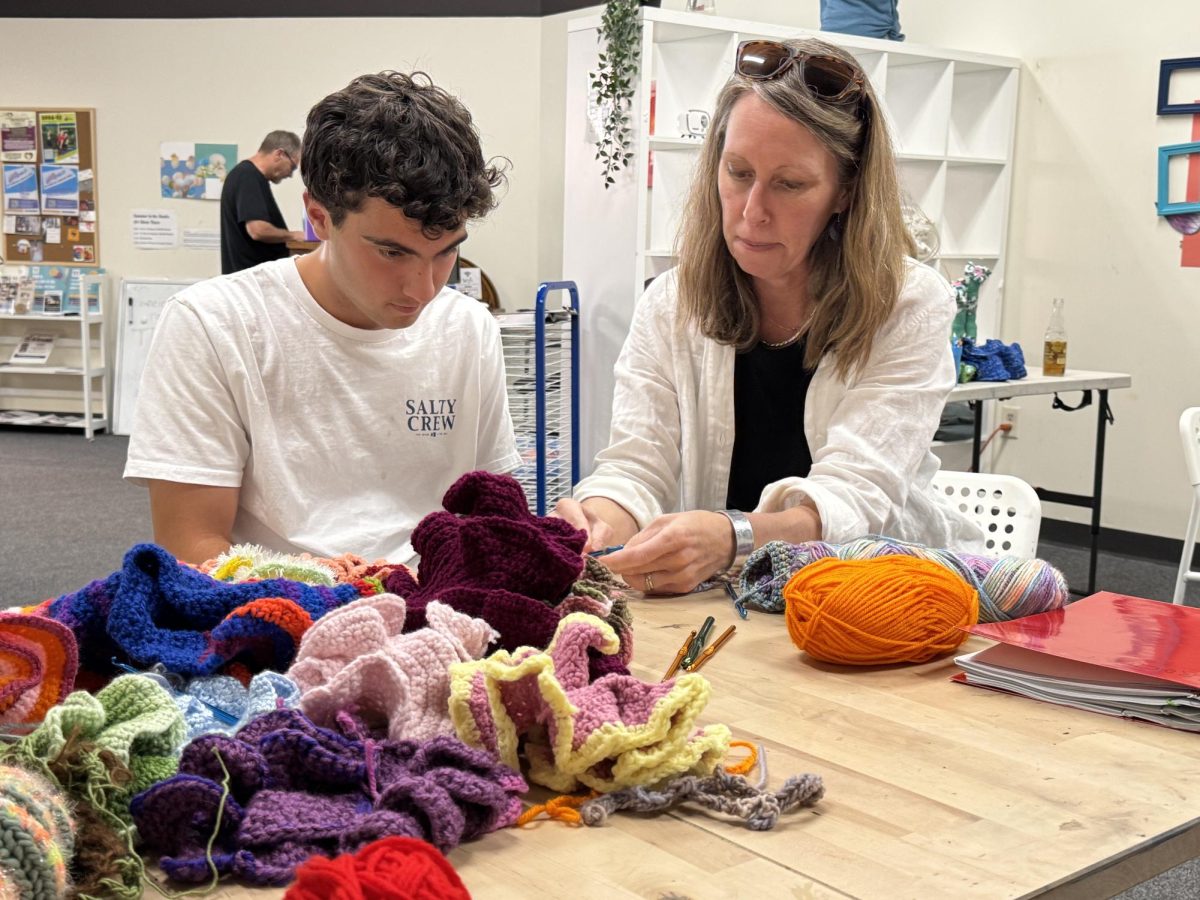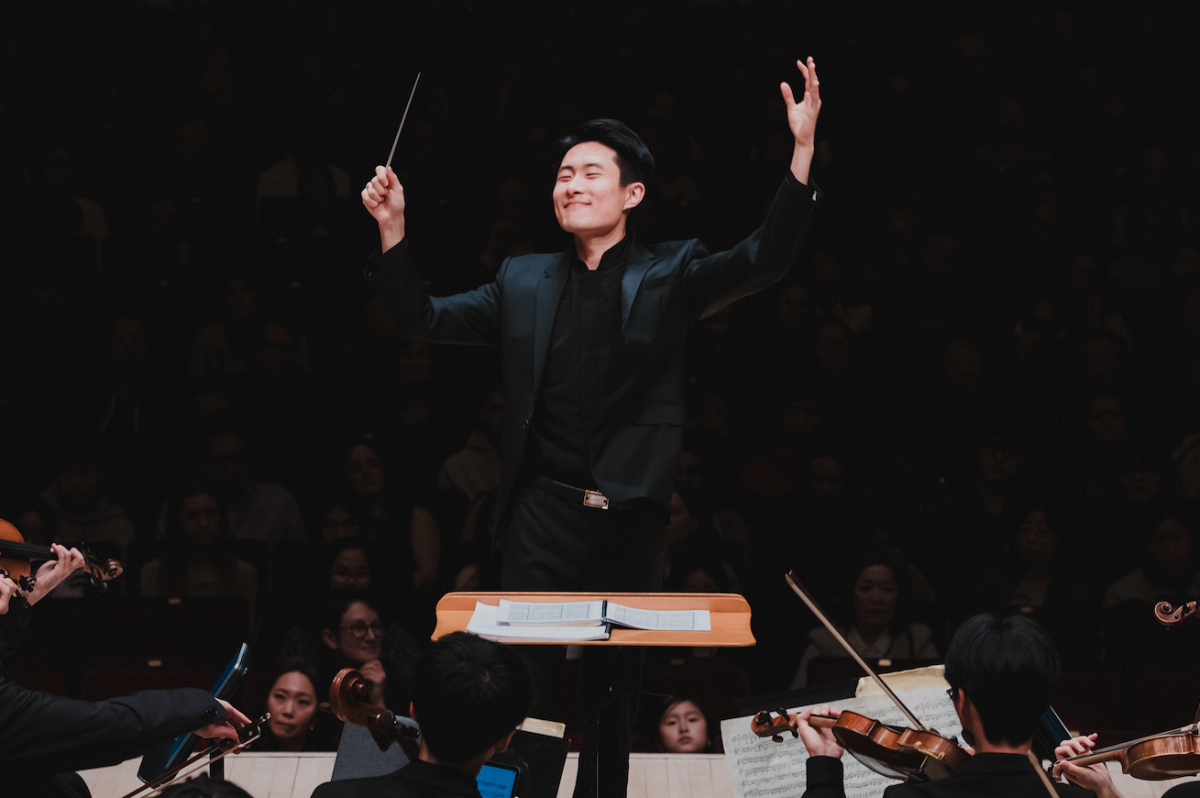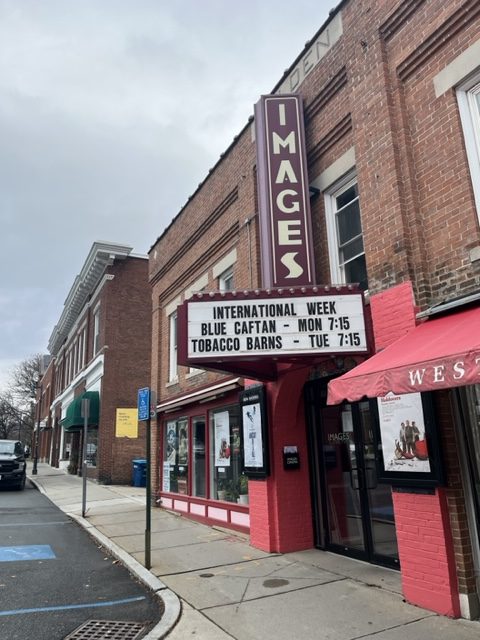
Last weekend, Images Cinema held its first Indigenous Peoples Film Festival in collaboration with the Stockbridge-Munsee Community’s (SMC) Cultural Affairs Department and students in Associate Professor of History Christine DeLucia’s class HIST 276: Stockbridge-Munsee Mohican Community Histories, Presents, and Futures.
The event received funding from the College’s Just Futures Project and the Office of the President.
The festival commenced on Nov. 10 with an opening reception catered by chef and caterer Melissa Baehr’s Indigenous Deliciousness and ended on Nov. 12 with a closing night reception featuring cheese from Cricket Creek Farm in South Williamstown. Images held five screenings as part of the festival, including Frybread Face and Me (2023), Beans (2020), Thunderheart (1992), Lakota Nation vs. United States (2022), and Fancy Dance (2023). Each screening was accompanied by short films on the Stockbridge-Munsee band’s history.
According to Executive Director of Images Cinema Dan Hudson, the festival’s movie lineup was designed to honor Indigenous artists and narratives. “This is our first time doing a festival that not only is centered on Native and Indigenous stories, but predominantly Native and Indigenous filmmakers as well,” Hudson said.
Over the 2023 spring semester, the students in DeLucia’s class conceived of and worked on several service projects with the SMC Tribal Historic Preservation Office. Four of those students, Jayden Jogwe ’24.5, Audrey Liu ’26, Nico Sabelli ’26, and Ashley Shan ’26, undertook the creation of an Indigenous film festival in Williamstown as one of the course’s cumulative projects.
[Editors Note: Shan, a visuals editor for the Record, was not involved with the writing or editing of this article.]
The course itself stemmed from an independent study in fall 2021, HIST 497: “Mohican Nation in Williamstown,” organized by Jogwe, Hikaru Hayakawa ’24, and Gwyn Chilcoat ’24, who created a digital resource on the Mohican Homelands including educational guides on the Stockbridge-Munsee Mohicans and opportunities to intern with the SMC Tribal Historic Preservation Office.
The students’ work also included putting signs around Williamstown last year to advocate for the “Go beyond the land acknowledgment” initiative, a movement that calls for informed action plans to support Indigenous peoples instead of solely verbalizing recognition of Indigenous peoples’ homelands. “After the independent study concluded, it became apparent to all of us that an important next step would be developing regular curricular offerings for Williams College students more broadly to learn with and about SMC experiences, and to meaningfully contribute to the community’s work,” DeLucia wrote in an email to the Record.
“The [HIST 276] course, syllabus, and student service projects reflect Stockbridge-Munsee Community knowledge, sovereignty, and the importance of community self-determination in education and representation,” DeLucia added. “I am immensely grateful to Monique Tydall, director of cultural affairs, and [Tribal Historic Preservation Manager] Bonney Hartley, for their time, knowledge, and involvement.”
Before participating in the project-oriented portion of the course, HIST 276 students studied the historic and contemporary experiences of the Stockbridge-Munsee people by connecting with them. “Once we learned that part and how to engage in decolonial work in collaboration with Indigenous communities, we … worked together with the Stockbridge-Munsee Cultural Affairs Department to come up with a list of things that would be helpful for them,” Jogwe said.
To launch their project within the course’s timeframe, the four students involved with this project presented a mini film festival, Native Voices in Film, in May 2023, which displayed two short films by Rodrigo Valdiviezo-Salazar ’23. After the semester ended, the students continued their unfinished work over the summer, meeting over Zoom from their respective homes, Jogwe said.
During those months, the students consulted with the Native American Indigenous Students Alliance (NISA) and the SMC to assemble a list of films that celebrated Indigenous peoples’ histories. “It was really between Images and the Stockbridge-Munsee Cultural Affairs [to decide] what [movies] work together, but also what is appropriate — what shows Indigenous peoples in the most accurate light,” Jogwe said.
Jogwe said he hopes the class’s pioneering work in establishing the film festival will be one of many initiatives to institutionalize the representation of Indigenous peoples at the College. Over the years, he has collaborated with Mirabai Dyson ’24, Hayakawa, and Chilcoat to educate students and faculty on the importance of Indigenous histories: past, present, and future. On Nov. 30, these students will also hold their first organizational meeting to advocate for implementing Indigenous studies at the College.




